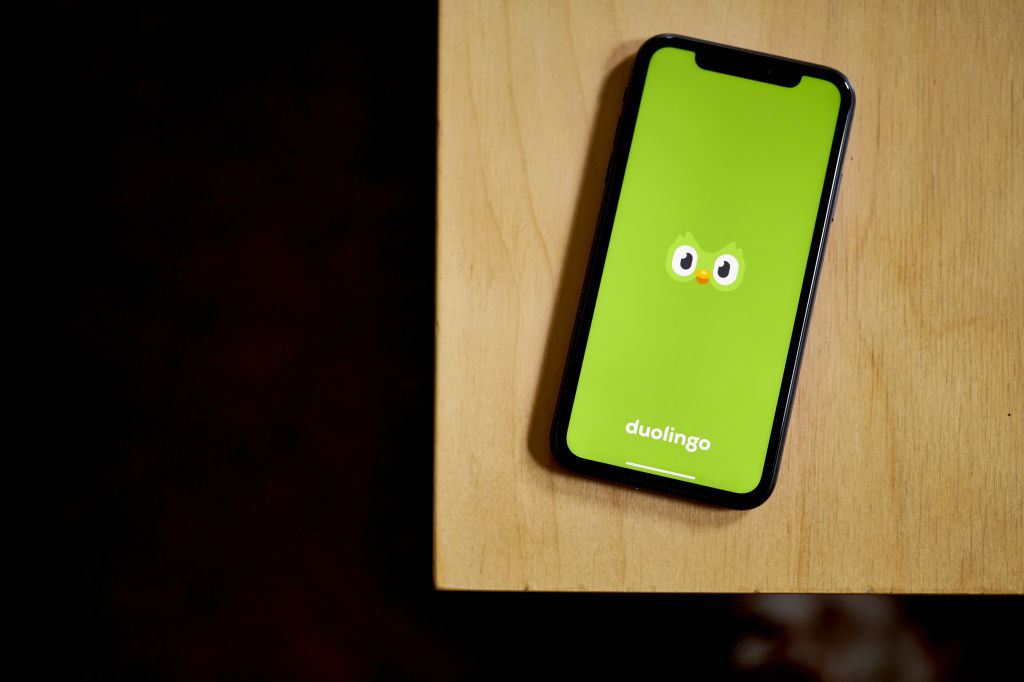I won’t make myself a broken record by repeating some in these comments, but I’ll add to the disagreement here. Or at least partial disagreement. As an ADHD person, I stand to benefit from apps like Duolingo and Habitica, something that engages my monkey brain to be interested in topics I want to be interested in but I don’t have the discipline to do or the focus to either. Now, of course, listing those two apps together is a bit misleading as one gamifies learning languages while another gamifies building good habits/discouraging bad ones (whatever those may be for you), but I don’t think it detracts from my point.
Now does Duolingo actually succeed at teaching you a language? I will say no, or, at least, not by itself. I will tend to recommend Duolingo either as a beginning tool to get your feet off the ground or with the caveat of “you should also use X, Y, and/or Z tool/study method”. (Side note, a: are there any language learning communities on Lemmy, and b: would it be worth creating one on Beehaw if not)
Like most things under capitalism; *it doesn’t have to be. *
I mostly agree with this write-up, but I also think it’s not the most useful framework. I’d argue “gamification” as used in the tech industry (and increasingly outside it, as per the piece) is a little meaningless, because “gamification” supposedly means applying game mechanics to tasks, but game mechanics are themselves often attempts to simulate accomplishing real world tasks (though admittedly in a pleasurable way). The idea of a progress bar is often used as an example of simple gamification, but surely lumping in a progress bar, which is genuinely useful so you know how many forms you have left to fill or whatever, with the patronizing condescension of many of these mechanics isn’t a particlarly useful grouping.
Because of my work (I do software consulting for nonprofits and do-gooders), I often get asked about “gamification,” so I’ve done several dives into the scientific literature about whether it actually works. Here’s a typical example of what you’ll always find if you do that:
The paper examines the state of current research on the topic and points out gaps in existing literature. The review indicates that gamification provides positive effects, however, the effects are greatly dependent on the context in which the gamification is being implemented, as well as on the users using it. The findings of the review provide insight for further studies as well as for the design of gamified systems.
And of course it depends on the context. All those work-productivity schemes described in the linked piece are so obviously bullshit cooked up by some b2b consultancy. Every single person who has ever had a job knows in their bones it’s bullshit.
I’ve put forth what I think is a more useful framing here. Very, very short version: Computers are general-purpose machines capable of doing many simple tasks very quickly. Their primary purpose is to simplifiy a lot of inputs into fewer outputs, thus allowing their human users to make sense of a complex world by simplifying it. Capitalism tends to use computers backwards, such that we end up being simplified, rather than being presented with a simplified world. Being simplified is a bad user experience.
I think framing might help explain the debate happening in the comments here, too. “Gamification” can be used to make apps more addictive, but they can also be used to motivate people to do things they want to do. The question isn’t whether gamification itself is bad, but whether computers are being used to help us or extract from us. In the latter case, dressing them up like a game is demeaning and dystopian.
I’m not sure I agree with the premise that gamification is bad. Many people need a push to do things that improve their lives.
The Fitbit example is one that jumps out in that it is there to motivate people into exercise. While I personally don’t respond to comparisons to others, I do respond to data where I can compare my results and recognize that my watch telling me I did a good job feels good about the exercise I just did.
Kahn Academy is gamification of a form of education. Earning points for learning many subjects.
I think there is merit to the argument that Duolingo went a bit overboard with trying to guilt you into continuing, but I don’t think it can reasonably be argued that trying to motivate people into language study is bad.
I think mentally, the author is probably just one of those like myself that doesn’t respond well to gamification overall but the majority of people definitely do and it can help in self improvement.
That said, I totally agree about a gamified workplace. That strikes me as a slippery slope to an unhealthy relationship with work.
you can also just turn push notifications off for any app including duolingo, and like any app it asks up front whether you want them
i dont get the authors point on a gamified workplace
it really seems like they repeatedly just forget that the alternative to a gamified workplace is a non gamified workplace as opposed to no work
they complain about the focus on creativity as something useful or profitable, and seemingly see this focus as some all encompassing issue infecting every facet of life
ignoring that this is in the context of work, either an employer paying you to achieve a specific goal or you yourself trying to achieve a specific goal through apps like duolingo
the parts of their life being infected by this focus on productivity and profitability were parts that were already explicitly focused on those things, and would continue to be focused on those things without gamification
complaining about creativity not being seen as good unless its productive of profitsble is entirely misplaced, because its only happening within these settings that are already by definition focused on productivity or profitability
gamification of work can be effective and a good thing for workers, the issues arise when it increases stress rather than decreasing it, for instance by introducing serious repercussions for falling behind
Agreed with you there about gamification and how it can be useful for some people.
I do think that the latter half of the article that tries to present the difference between “gamification” and “play” is fascinating, and I wish they dove into that a little bit more. I understand that they’re trying to say that having this endless churn of “goals” in “gamification” is potentially harmful, but then what’s the alternative look like when it comes to Fitbit, Duolingo, etc.?
It can definitely be a problem.
MMORPGs suffer from over gamification in that way. It’s a video game that has daily/weekly/monthly goals to keep your engagement. I stopped playing FFXIV because it was feeling like work. But the game Wild Star was the worst offender I ever came across. I couldn’t go 10 feet without an announcer yelling about a new goal that I could take part in. It was a shame, too, because the gameplay was actually very good in that game.
It’s important to have downtime to just gather ourselves and we have a tendency to ignore that need. It’s very easy to get over engaged. “What’s today’s Wordle?” “Did you run your miles today?” “The owl misses you!”
I think maybe the biggest issue is that they ask want your attention every day. Maybe it would be better if they only said something a couple of times a week each.
Gamification in your personal life can be a useful tool to motivate yourself to complete a chore you don’t want to do, to build a habit that you have trouble forming, to otherwise increase the hit of dopamine you get when you do something if you’re someone who has trouble creating reward cycles in your life (shout out to !neurodivergence@beehaw.org). When a corporation does it to increase your addiction to their platform, as so many do with phone platforms, social media platforms, or content consumption platforms, or with their employees, it is definitively exploitative.
Yeah, as someone with ADHD I find the idea that gamification is inherently exploitative to be outright offensive. It’s an absolutely necessary accessibility tool for many people with executive function issues. Hell I need gamification to remember to brush my damn teeth every day.
Sure some corpos can take it too far, but this article is way off the mark.
My ADHD brain also craves the dopamine hit.
However, I recently watched a video on how a Chinese shopping site gameifies itself to entice users to spend money with literal “spin the wheel for a chance at a huge discount” then “refer a friend to spin the wheel again!”
When gameification becomes a gamble, that is when it is exploitive.








